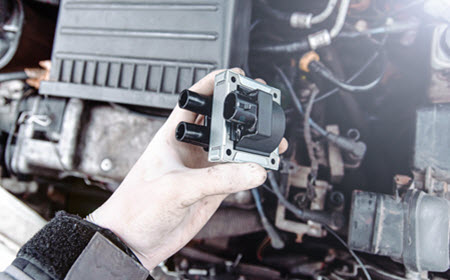Purchasing a BMW is a guaranteed quality investment into your personal transportation for the next decade or more. Not only is BMW an attractive brand, but their performance is top-notch. Driving a BMW is a pleasure and a joy to savor. BMW also has an overall high safety rating, which makes them great for families and everyone else, too.
BMWs will eventually experience a need for maintenance and upkeep beyond your usual oil changes. This is especially true of older BMWs who are climbing in both years and miles. One of the issues you may experience as your vehicle ages is a failing or failed ignition module. If you suspect it’s time for your BMW to have an ignition module replacement, it’s a good idea to know what you’re looking for.
The Ignition Module Itself
The ignition module is the component of your vehicle’s engine that turns over the ignition coil. More specifically, ignition modules are breakers, and function by sending a spark to the coil. These breakers are tripped when you turn the key in the ignition, kickstarting a multi-step chain reaction to bring your engine purring to life. In short, ignition modules are absolutely essential to start your vehicle. Without them, it’s simply not possible.
Signs of a Failing Ignition Module
There are a few signs that point to a failing ignition module, including a stalled engine. If your BMW stalls suddenly and refuses to turn over again, this is a sign that your ignition module is experiencing a power loss. This is usually due to loose or corroded electrical wiring between the breaker and an electrical source.
If your engine overheats and you can’t find an apparent cause such as low oil levels, your ignition module may have called it quits. Signs of an overheated engine, as well as correlated problems caused by your overheating engine include:
- stalled engine
- stuttering engine
- gasoline odors
- electrical shortages
Reduced fuel efficiency and loss of power are two other signs of failing ignition modules. If you notice that your BMW is experiencing reduced fuel efficiency and a simultaneous loss of power with no other apparent causes, a faulty ignition module may be to blame. Whether your reduced fuel efficiency is a direct result of the ignition module or just a casualty of your overheated engine as a result of a bad ignition module, it’s critical to get the problem examined quickly.
Your vehicle may refuse to start if it’s having trouble with the ignition module. If your BMW won’t start at all, the only recourse you have is to have your vehicle towed to a mechanic and have the ignition module replaced.
How to Prevent a Failed Ignition Module
While there is no foolproof method to keep any auto part from failing, it’s possible to mitigate the risk by taking excellent care of your vehicle including ignitions checks on all routine maintenance. While it may seem excessive, the best preventative maintenance you can do is during your regular checkups. Ask your mechanic to check your ignition module while they examine the rest of your vehicle. It’s quick to do and may save you more expensive repairs down the road.
Also, check your spark plugs and battery. It’s also prudent to have your mechanic take a quick peek at your spark plugs and check your battery’s electrical output during your routine maintenance visits. BMWs are known for their extensive and frequent service programs, so it’s essential to make sure your mechanic checks components they may not look at in other models. If your mechanics detect a potential problem before it occurs, it may save your engine the loss of its ignition module down the road.
If Your Ignition Module is Failing, DART auto Can Help
If you experience any of the signs of a failing  ignition module, bring your BMW in to DART auto for a checkup and repairs. DART auto has been serving Englewood, Littleton, Centennial, and Denver, Colorado, for 20 years. Every vehicle is backed by our 3-year, 36,000-mile warranty, so you know that you can drive off the lot feeling confident in your future adventures.
ignition module, bring your BMW in to DART auto for a checkup and repairs. DART auto has been serving Englewood, Littleton, Centennial, and Denver, Colorado, for 20 years. Every vehicle is backed by our 3-year, 36,000-mile warranty, so you know that you can drive off the lot feeling confident in your future adventures.
